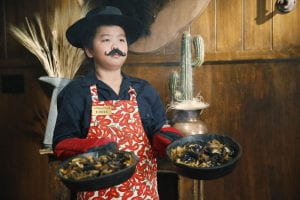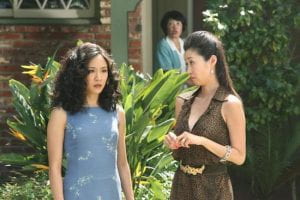1.
Coyne, Sarah M., et al. “It’s a Bird! it’s a Plane! it’s a Gender Stereotype!: Longitudinal Associations between Superhero Viewing and Gender Stereotyped Play.” Sex Roles, vol. 70, no. 9-10, 2014, pp. 416-430. ProQuest, http://prx.library.gatech.edu/login?url=https://search.proquest.com/docview/1531890817?accountid=11107, doi:http://dx.doi.org/10.1007/s11199-014-0374-8.
This longitudinal study explores the gender stereotype of masculinity. It had 134 mothers of pre-school children report information over several years. The study takes into account the exposure of children to superheros (television and movies) and their amount of male-stereotyped play and weapon play that results from it. Boys are more likely to mimic the male-stereotyped and weapon play because they can relate to the superheroes. Since the superheroes are mostly boys or geared towards boys, young boys see them as a role model. But, girls who watched high levels of superheros were not more likely to use male-stereotyped play or weapon play than girls that didn’t watch as much because they can not relate to the shows and movies as much as boys can. This source is valuable because it is longitudinal so it portrays the effect on children viewing of these hypermasculine shows. It also details the social psychology behind imitating shows and why boys and girls react differently when they watch the same thing. Also, the comparison of boys to girls is extremely effective in this source.
2.
England, Dawn E., Lara Descartes, and Melissa Collier-meek. “Gender Role Portrayal and the Disney Princesses.” Sex Roles, vol. 64, no. 7-8, 2011, pp. 555-567. ProQuest, http://prx.library.gatech.edu/login?url=https://search.proquest.com/docview/857999236?accountid=11107, doi:http://dx.doi.org/10.1007/s11199-011-9930-7.
This article details how Disney princess movies have trended towards more egalitarian gender roles. In the study, they determined the frequency that princes displayed certain qualities and how often the princesses displayed the qualities. For example, some of the qualities are helpful, sensitive, curious, assertive and athletic. The rise of feminism affected their tactics because then princes began showing emotions and princesses became more assertive, but the plots often rely on the princess getting the man in the end. For example, while Pocahontas and Mulan deal with diplomacy and war, in the end they are paired off with their princes. The value of this article comes from the contrast from the 1930s to modern day and how Disney employs traditional gender roles. The paper suggests provocative ideas, but doesn’t necessarily have empirical evidence because the display of kindness (or any other trait) is vague and subjective. It overall details how it is hard for Disney to break from gender stereotypes, while still pleasing their consumers.
3.
García-Muñoz, Núria and Maddalena Fedele. “The Teen Series and the Young Target. Gender Stereotypes in Television Fiction Targeted to Teenagers.” Observatorio (OBS*), vol. 5, no. 1, Jan. 2011, pp. 215-226. EBSCOhost, prx.library.gatech.edu/login?url=http://search.ebscohost.com/login.aspx?direct=true&db=a9h&AN=82233901&site=ehost-live.
This article focuses on television for teenagers. It increases the information about the images of young people that are portrayed in teen television.The conclusions come from analyzing the social and physical descriptions, personality traits, and role in the plot of each character. The results are more than just which qualities boy characters or girl characters have, it is much more in depth. It introduces the idea that older people are underrepresented on television. Also, that almost all homosexual characters display traditional feminine qualities, which is based purely on stereotypes and not reality. This article is valuable because is important to know what messages teen shows promote because the teen years are when the identity is formed and teens should not have to be limited by stereotypes. While the article displays how powerful media is and the need for less stereotypes in television, it is a very limited study focusing on few shows and specific characters. It is overall easy to read, but some conclusions may not have enough evidence to be significant.
4.
Gerding, Ashton, and Nancy Signorielli. “Gender Roles in Tween Television Programming: A Content Analysis of Two Genres.” Sex Roles, vol. 70, no. 1-2, 2014, pp. 43-56. ProQuest, http://prx.library.gatech.edu/login?url=https://search.proquest.com/docview/1477375870?accountid=11107, doi:http://dx.doi.org/10.1007/s11199-013-0330-z.
This is a content analysis of gender roles in teen television shows. The study used 49 episodes from 40 different shows that can be distinctly identified as either teen scene (geared towards girls) or action-adventure (geared towards boys). The results are displayed in percentage of male and female characters in both show categories that are attractive, show bravery/rescue, and use technical skill. Overall the analysis details how females were more likely to be attractive , while the males were considered more unattractive. Women have to be beautiful to be watched, but men can rely on personality alone in shows was one of the conclusions. Also, the analysis dissects how the ratio of males to females in the shows are 2:1, thus continuing the culture that men/boys are more important. The value of this source is that it takes into account television shows for girls and boys. Overall the focus is on teen television’s misrepresentation of females and it may not disclose how men are misrepresented on television shows, so it is overall more biased than some other articles.
5.
Steyer, Isabella. “Gender Representations in Children’s Media and Their Influence.” Campus — Wide Information Systems, Mar. 2014, pp. 171-180. EBSCOhost, doi:10.1108/CWIS-11-2013-0065.
This article details the negative influence sexist representations in media (including television) have on children’s development. In the era of “equal rights”, it is still common to see women underrepresented in television and to see them performing traditional roles. This scholar article argues that society is far from equal, but change starts with the next generation. Children who are exposed to non-traditional gender representation have more positive development, but this is not common. The article explains in depth how men outnumber women in children’s television. For example, the ratio of men to women is 2.6:1 in the 101 G-rated films taken into account. Not only are do girls see less of their gender, but boys are developmentally stunted. Females are often more attractive and intelligent than their male counterparts, which lowers boy’s self-esteem. Also, women are portrayed more as moms, while older men are seen more as bachelors, therefore a lot of television lacks positive male role models. The value of this article comes from its mixture of conceptual ideas with statistical evidence. It also gives equal thought to all children’s development, not just specifically girls or boys. It is worth reading because a lot of themes and stereotypes go undetected in children’s television shows and these just further promote inequality, but they are sometimes hard to point out because sexist representations are so deeply connected to our culture.
6.
Thompson, Teresa L., and Eugenia Zerbinos. “Television Cartoons: Do Children Notice it’s a Boy’s World?” Sex Roles, vol. 37, no. 5, 1997, pp. 415-432. ProQuest, http://prx.library.gatech.edu/login?url=https://search.proquest.com/docview/225382192?accountid=11107.
This article explores a study of how 89 children perceive male and female cartoon characters differently. The article provides background in behavioral psychology and typical gender stereotypes in television including the job status, knowledge, and representation of characters. It reports that children noticed gender-stereotypical behaviors in cartoon characters including the stereotypical representation that boys are violent and active, while girls are more domestic and boy-obsessed. Also majority of the kids chose traditional occupations for their own futures. This is worth reading because the study results take into account factors like age and Mother’s working status, making it more reliable. It is also important because it explains in detail that kids are exposed to television at a young age and do not always separate the fantasy of cartoons from reality. The value comes mostly from the empirical evidence that supports that gender stereotyping begins at a young age and that it can be connected specifically to television because especially in the Humanities field there is not always evidence to support arguments.







